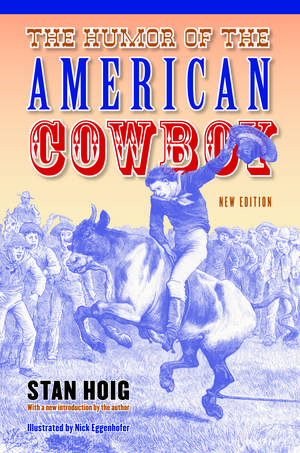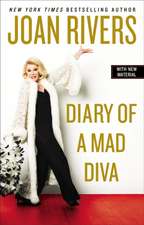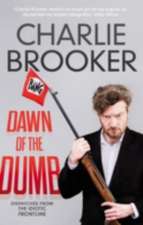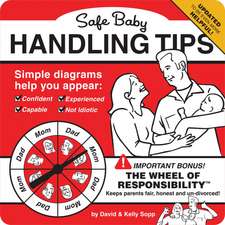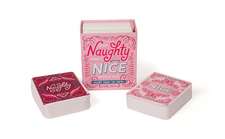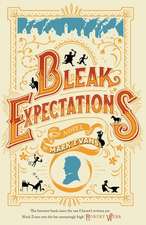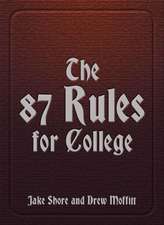The Humor of the American Cowboy
Autor Stanley Hoigen Limba Engleză Paperback – 30 iun 2006
To the cowboy, for whom the world was a circus of creation, nothing was beyond the scope of laughter. His fertile imagination could produce trail drives of dry-land terrapins, cowboy firing squads for fighting game roosters, and a breed of "honk-honk birds" that could outrun a horse. He used humor to express his fondness for the West, to exchange sarcasms with railroaders, to teach lessons to tenderfeet, and even—sometimes—to laugh at death.
In The Humor of the American Cowboy, Stan Hoig presents an authentic collection of tall tales, anecdotes, yarns, jokes, and humorous incidents of the Old West that not only entertain but also focus attention on a sometimes overlooked phase of cowboy life.
Preț: 80.82 lei
Nou
Puncte Express: 121
Preț estimativ în valută:
15.46€ • 16.20$ • 12.78£
15.46€ • 16.20$ • 12.78£
Carte disponibilă
Livrare economică 21 martie-04 aprilie
Preluare comenzi: 021 569.72.76
Specificații
ISBN-13: 9780803273597
ISBN-10: 0803273592
Pagini: 200
Ilustrații: Illus.
Dimensiuni: 150 x 250 x 15 mm
Greutate: 0.22 kg
Ediția:Nouă
Editura: BISON BOOKS
Colecția Bison Books
Locul publicării:United States
ISBN-10: 0803273592
Pagini: 200
Ilustrații: Illus.
Dimensiuni: 150 x 250 x 15 mm
Greutate: 0.22 kg
Ediția:Nouă
Editura: BISON BOOKS
Colecția Bison Books
Locul publicării:United States
Notă biografică
Stan Hoig is professor emeritus of journalism at the University of Central Oklahoma. His other books include The Sand Creek Massacre, Perilous Pursuit: The U. S. Cavalry and the Northern Cheyennes, and The Battle of the Washita: The Sheridan-Custer Indian Campaign of 1867–69, available in a Bison Books edition.
Recenzii
"The whole gives many a chuckle, as wry and dry as the land whence they came. . . . The drawings by Eggenhofer are among the best he has ever done."—San Francisco Chronicle
“A duke's mixture of mirth, irony and downright horseplay, made vivid by the brushpopper's salty imagery and remarkable aptitude for precisely the wrong word in the right place.”—New York Times Book Review
